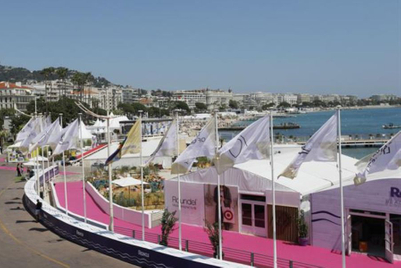I am a believer in the power of creativity and clearly, given my history as past chairman of Cannes Lions, a true believer in awards. In a world where openness and transparency are now the norm, or at least should be, the need for the awards industry to be totally open is something that has to happen. The customers want it. It’s in the awards organisers' power to give. And for the good award shows, there should be no fear.
Now I know many people will say that in my previous role I exploited the desire to win awards. But what I am asking for is something that Cannes Lions and its associated festivals have always done, and that that awards shows provide transparency about the key entry-to-win ratios that establish the veracity of any award.
The fact that I know my chances of at winning metal at Cannes is around 3.6%, the fact that I know that my chance of winning at One Show is around 3%, gives me a level of comfort that they are world-class shows. And if other events purporting to be advancing the industry are awarding metal at 9% on far lower entry numbers, I need to be aware.
To be clear there are across the planet at global, regional and local levels in creative and effectiveness well over 700 award shows (and growing) representing various sectors of our industry. We don’t need over 700 awards to showcase what we do so well.
How do they survive? By hiding the veracity of the key measurement of their awards, entry numbers. Without entry numbers you cannot measure the entry-to-win ratios. And without the entry-to-win ratios you cannot measure the veracity of the awards in order to decide whether they are worth entering.
This lack of transparency then distorts the various rankings (whose methodologies are also secret) and allows all and sundry to claim various levels of success.
It also allows for price gouging. Cannes Lions may look expensive, with 35,000+ entries and entry fees that go above €1000 (US$1120) depending on category and timeliness of entry. But compare it to lesser shows with a few thousand entries or even a few hundred entries if that, and a €500 (US$560) entry fee, and it is clear that this "smoke and mirrors" approach works totally in favour of the award events not their customers.
My belief is that award organisers and publishers who run awards need to create a level playing field: announce the winners but at the same time announce the entry numbers, so that the people and companies entering fully understand the scale of the events they are entering.
I also believe that all industry rankings should only accept awards in their rankings if the relevant award organisers announce these entry numbers.
There will be push back from the awards because it’s not in their interest to reveal their awards for what they are. There will be push back from the rankings because transparency removes their power.
But we need award shows that demonstrate a business validity to the industry and their customers. And the industry can take care of the issue by not entering those awards that will not release the information.
There is something else to consider: the huge sums invested in entering awards that have no real business value diverts funds that could be allocated to the very future of our business.
At a time when our industry is under such competitive pressure from so many sectors - we simply do not train our future creative leaders in management and leadership skills - these are the very people that can restore our legacy as idea generators.
Imagine if we were able to divert half the investment in the awards that don’t matter to developing real skills in our future creative leaders.
It’s simple, really. Let’s celebrate great awards that mean something. Let’s demand that award organisers start to be transparent about entry numbers. Let’s not enter awards that are not prepared to do this most basic of things. And let’s not support rankings that are hidden behind secret methodologies. It’s in the power of the industry to do this without effecting one bit the honouring of great work.
Then maybe, just maybe, we can divert that wasted funding to our future talent and ensure the longevity and brilliance of what we do best: create great work for the brands we work with.
It's not in the hands of the awards organisers. It’s in the hands of those that enter. Demand the entry numbers, and whilst that will not solve everything it's a big step forward to understanding what awards really matter.
There is nothing to fear here. The great shows will be great. The great work will be honored with fewer shows even more so. But most importantly if we are going to come out on top then the need to train our creatives in leadership and management is paramount.
Terry Savage is founder of Savages Unlimited. Prior to this he was chairman and CEO of Cannes Lions for 15 years. He currently works with clients such as leadership and development program The Marketing Academy, where he is global chairman, and is a creative consultant for Dentsu.




.jpg&h=334&w=500&q=100&v=20250320&c=1)
.jpg&h=334&w=500&q=100&v=20250320&c=1)



.jpg&h=334&w=500&q=100&v=20250320&c=1)
.jpg&h=334&w=500&q=100&v=20250320&c=1)


.jpg&h=334&w=500&q=100&v=20250320&c=1)
.jpg&h=268&w=401&q=100&v=20250320&c=1)



.jpg&h=268&w=401&q=100&v=20250320&c=1)

.jpg&h=268&w=401&q=100&v=20250320&c=1)

